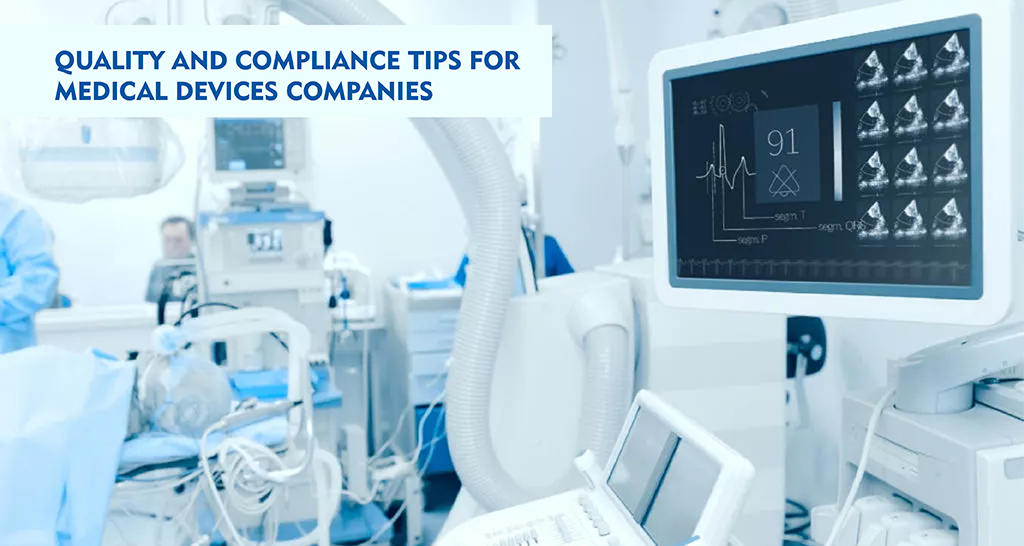Medical devices are evolving and hence quality and compliance is paramount. These devices play a crucial role in patient care and safety, making it imperative for your medical company to adhere to strict quality standards and regulatory requirements.
In this article, we give you some essential tips that can guide your medical device company in maintaining the highest levels of quality and compliance.
Stay Current with Regulatory Changes
Regulations governing medical devices are subject to frequent updates. Your company must stay abreast of changes in regulatory requirements to ensure your products remain compliant. Regularly monitor updates from regulatory bodies such as the Food and Drug Administration (FDA) in the United States, the European Medicines Agency (EMA), and other relevant authorities. Establish a dedicated team or engage regulatory experts to interpret and implement new regulations in your company effectively.
Implement a Robust Quality Management System (QMS)
Implementing a well-structured Quality Management System (QMS) in your company forms the foundation of quality and compliance for your medical device products. It will help you outline processes, responsibilities, and procedures to ensure that products consistently meet regulatory standards. Establish a QMS that covers design controls, risk management, document control, and corrective and preventive actions. You should also regularly review and update your QMS to reflect evolving industry best practices and regulatory changes.
Conduct Thorough Supplier Audits
As a medical device company, you probably rely on a network of suppliers for various components. Without a proper eye on the supplier goods, you can easily compromise the quality and compliance of your medical devices. Conduct thorough audits of these suppliers to ensure that the supplied goods meets quality standards and regulatory requirements.
For example, if you are manufacturing medical products like medical implants, catheters, feeding tubes, or drains, make sure the supplied medical grade silicone tubing passes quality and compliance tests. It doesn’t matter the type and size of supplied goods. Make it a mandate to pass these medical products through a meticulous audit to conform to the quality standards for your manufacturing processes, quality control measures, and documentation practices. Collaborate closely with suppliers to address any identified issues promptly.
Invest in Training and Education
Quality and compliance are not solely the responsibility of a specific department. They are a company-wide endeavor. Provide comprehensive training to all your employees about the importance of adhering to quality standards and regulatory requirements. Training should cover topics such as good manufacturing practices, design controls, and adverse event reporting. If your employees are Informed and educated employees are more likely to contribute to maintaining high levels of quality.
Prioritize Risk Management
Effective risk management is critical in the medical device industry. Identify potential risks associated with your devices, assess their impact, and develop strategies to mitigate these risks. Employ methods like Failure Mode and Effects Analysis (FMEA) to identify and prioritize potential failure modes. Integrating risk management into your product development lifecycle can lead to safer and more reliable medical devices.
Embrace Continuous Improvement
Quality and compliance are not static goals, they require ongoing effort and improvement. Foster a culture of continuous improvement within your organization. Encourage your employees to identify areas for enhancement and provide mechanisms for them to share their insights. Regularly analyze data, feedback, and audit findings to identify trends and implement corrective actions.
Conclusion
In conclusion, maintaining quality and compliance in the medical device industry is a multifaceted challenge that requires commitment, vigilance, and a proactive approach. By staying informed about regulatory changes, implementing robust systems, and fostering a culture of quality, medical device companies can ensure the safety and effectiveness of their products while meeting the highest regulatory standards. Ultimately, these efforts contribute to the well-being of patients and the credibility of the company in the industry.

